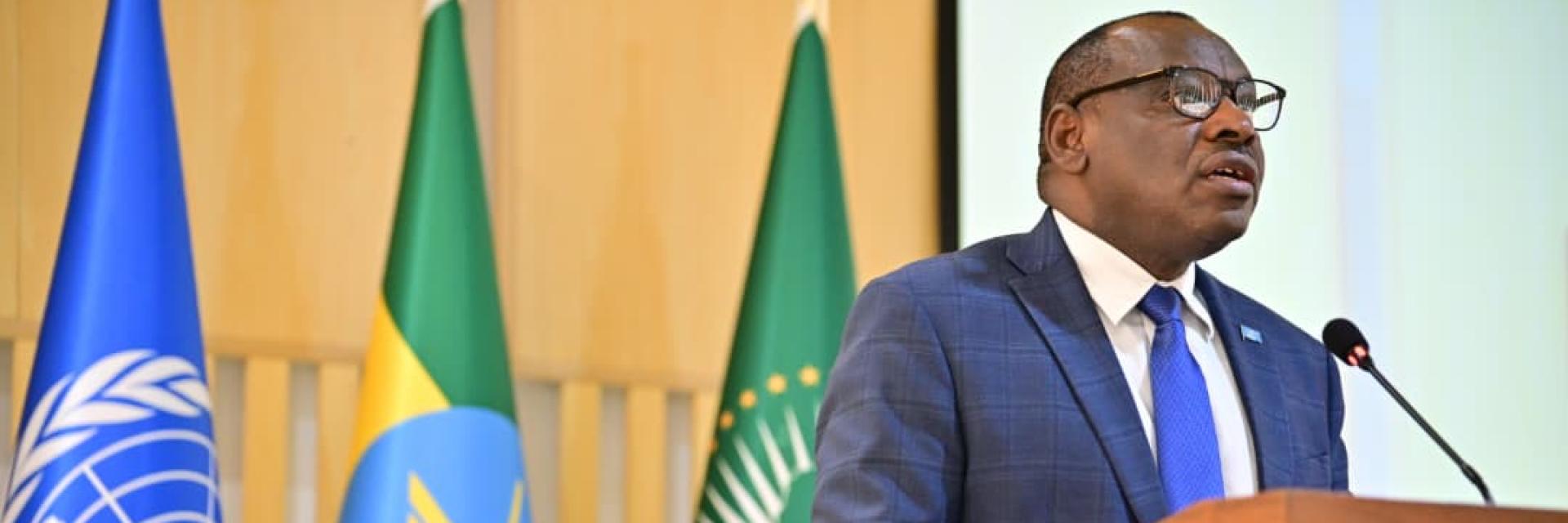Addis Ababa, Ethiopia, September 7, 2025 (ECA) – The thirteenth Conference on Climate Change and Development in Africa (CCDA-XIII) concluded this Sunday in Addis Ababa with a call for urgent action and increased investment to advance Africa’s climate agenda.
The three-day meeting, convened by the Economic Commission for Africa (ECA) in partnership with the African Development Bank, the African Union Commission, and the Pan-African Climate Justice Alliance, brought together policymakers, scientists, civil society, and development partners. Its conclusions aimed to inform the Addis Ababa Declaration, a key technical input to the Second Africa Climate Summit (AEC2) and the foundation of Africa’s Common Position at COP30 in November.
Closing the conference, ECA Executive Secretary Claver Gatete underlined Africa’s commitment to moving from commitments to action.
“This conference was not an end in itself. It is a bridge connecting evidence to ambition, technical depth to political momentum, and Africa’s aspirations to concrete action. We came together to lay the foundations for the Second Africa Climate Summit and to bring the continent’s common voice to COP30. And today, we close this conference with determination, with a coherent and investment-ready African climate agenda,” he said.
Mr. Gatete identified six priority areas to guide Africa’s climate response:
- Adaptation and Loss and Damage: Adaptation must be at the heart of global climate action. Africa cannot shoulder a $160 billion adaptation gap alone. The Loss and Damage Fund must be operationalized without delay, on equitable and accessible terms.
- Science and data: Africa must address climate knowledge gaps through early warning systems, combining indigenous wisdom with modern technologies, and strengthening the science-policy interface.
- Climate finance: Africa’s financing must not remain trapped in aid dependency. Reforming the global financial system is essential to reduce unfair borrowing costs, restructure debt, and develop innovative tools such as green bonds and debt-for-climate swaps.
- Just Transitions: Africa’s energy transition must be green and just. With more than 600 million people still without electricity, access to electricity must be expanded while pursuing sustainable growth.
- Ecosystems: African ecosystems are vital resources for the planet, the protection of which requires fair valuation and increased international investment.
- African Leadership: Africa is not waiting for action. The continent is harnessing its resources, proposing solutions, and taking the lead in shaping the global climate agenda.
Mr. Gatete concluded with a call for unity and determination: “Africa is not waiting for action. We are shaping our destiny, harnessing our resources, and bringing solutions to the world. Together, we can ensure that these results do not remain words on paper, but translate into actions that transform lives on our continent.”
He also expressed his gratitude to Ethiopia for hosting the conference and recognized its role as a diplomatic hub for continental dialogue and decision-making.
Representatives from the Ethiopian government, the African Development Bank and the African Union were also present at the multi-stakeholder meeting.

